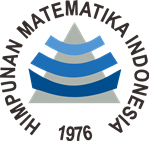The Effect of Mind Mapping Methods Types of Mind Map Syllabus on Mathematics Problem Solving Ability in Flat Side Space Construction Materials of Class VIII Students of Smp Negeri 1 Karangreja District Purbalingga
DOI:
https://doi.org/10.24090/ijrme.v1i2.9285Keywords:
Mind Mapping , Problem SolvingAbstract
Abstract: This study aims to determine whether there is an influence of the syllabus mind mapping method on the mathematical problem solving abilities of class VIII students of SMP Negeri 1 Karangreja, Purbalingga Regency. Mathematical problem solving ability is a quality possessed by someone to solve mathematical problems so that the goals to be achieved are resolved properly. One of the factors that influence the ability to solve mathematical problems is the model or method used in learning. The researcher chose to use the mind mapping method, a type of syllabus mind map, to improve students' mathematical problem solving abilities. This study used quantitative research (experimental) with a Quasi-Experimental Design. The population of this study were all class VIII which totaled 5 classes. The samples of this study were class VIII A, which consisted of 26 students and class VIII B, which consisted of 22 students. Collecting data in this study used a test consisting of a pretest and posttest. Data analysis used the t test and the N-Gain test using the SPSS version 25 application. The results of this study indicate that there is an influence of the syllabus type mind mapping method on the math problem solving abilities of class VIII students of SMP Negeri 1 Karangreja, Purbalingga Regency. The N-Gain results show that the N-Gain of the experimental class is included in the high category with an average N-Gain of 0.70 and the control class is included in the medium category with an average N-Gain of 0.54. So that the increase in students' mathematical problem solving abilities in the experimental class is higher than the control class. Keywords: Mind Mapping , Problem SolvingReferences
Abdur, Rahman, A. dkk. 2014. Matematika Kurikulum 2013 SMP/MTS Kelas VIII Semester 2. Jakarta: Kementerian Pendidikan dan Kebudayaan.
Adinawan, Cholik. 2017. Matematika Untuk SMP/MTs Kelas VIII Semester 2.
Jakarta: Penerbit Erlangga.
Agus, Krisno, B. 2016. Sintaks 45 Metode Pembelajaran dalam Student Centered Learning (SCL). Malang: Universitas Muhammadiyah Malang.
Agustami, dkk. 2021. “Analisis Kemampuan Pemecahan Masalah Matematis Siswa Dalam Menyelesaikan Soal Materi Lingkaran”. Jurnal Prodi Pendidikan Matematika (JPMM), Vol. 3, No. 1.
Akmalia, R. 2021. “Pengaruh Model Pembelajaran Mind Mapping terhadap Kemampuan Pemahaman Konsep Matematis Siswa SMP/MTS”. Doctoral dissertation, UIN AR-RANIRY.
Amir, Hamzah, & Lidia, Susanti. 2020. Metode Penelitian Kuantitatif Kajian Teoritik dan Praktik. Malang: Literasi Nusantara.
Apriliana, R., dkk. 2021. “Analisis Pembelajaran Siswa Pada Pembelajaran Matematika Materi Pecahan Dilihat Dari Kemampuan Pemecahan Masalah Matematika Kelas IV SD Negeri 2 Tlogotunggal Kabupaten Rembang”. Inventa: Jurnal Pendidikan Guru Sekolah Dasar, Vol. 5, No. 1.
Bobbi, dkk. 2005. Quantum Learning. Bandung: Kaifa.
Buzan, Tony. 2006. Buku Pintar Mind Map. Jakarta: PT Gramedia Pustaka Utama.
Hamalik. 2015. Kurikulum dan Pembelajaran. Jakarta: Bumi Aksara.
Hasibuan, S. S., & Hasibuan, S. A. 2020. “Efektivitas Penggunaan Metode Mind Mapping dalam Meningkatkan Kemampuan Pemecahan Masalah Matematika Siswa MAN 1 Medan”. Jurnal Genta Mulia, Vol. 11, No. 2.
Hasibuan, S. S., & Hasibuan, S. A. 2020. Efektivitas Penggunaan Metode Mind Mapping dalam Meningkatkan Kemampuan Pemecahan Masalah Matematika Siswa MAN 1 Medan. Jurnal Genta Mulia. Vol. 11, No. 2.
Hastuti Sri. 2017. Strategi Pembelajaran Matematika. Yogyakarta: Matematika.
Hendriana, Heris, dkk. 2021. Hard Skills dan Soft Skills Matematik Siswa. Bandung: PT Refika Aditama.
I Putu Ade A. P dan I Gusti Agung N. T. J. 2018. Panduan Penelitian Eksperimen Beserta Analisis Statistik dengan SPSS. Yogyakarta: CV Budi Utama.
Isro’il, A. dan Supriyanto. 2020. Berpikir dan Kemampuan Matematika. Surabaya: JDS.
Lestari, I. D. 2020. “Pengembangan Media Mind Mapping Berbasis 3 Dimensi Pada Kelas IV MI Tabiyatul Aulad Wedani”. Doctoral dissertation, Universitas Muhammadiyah Gresik.
Monawarah, M., dkk. 2018. “Identifikasi Kemampuan Pemecahan Masalah Siswa Pada Materi Sudut Pusat dan Sudut Keliling Lingkaran di MTsN Langsa”. Al-Kindi: Jurnal Ilmiah Mahasiswa Pendidikan Matematika (JIMPMA), Vol. 1, No. 2.
Ni Made Sri, A. H, dkk. 2022. Metode dan Teknik Pembelajaran, Jakarta Selatan: Komunitas Menulis Kedai Akademik.
Ningsih, E. F. 2023. “Pengaruh Pembelajaran Mind Mpping Terhadap Kemampuan Pemecahan Masalah Matematika Siswa”. Jurnal Lebesgue: Jurnal Ilmiah Pendidikan Matematika, Matematika dan Statistika, Vol 4, No. 1.
Rahayu, A. P. 2021. “Penggunaan Mind Mapping dari Perspektif Tony Buzan dalam Proses Pembelajaran”. Jurnal Paradigma. Vol 11, No. 1.
Rahmawati, R. 2019. “Penerapan Metode Mind Mapping Berbantuan Edmodo Blended Learning Untuk Meningkatkan Kemampuan Pemecahan Masalah Matematis”, Indikta: Jurnal Inovasi Pendidikan Matematika. Vol 1, No. 1.
Rusydi Ananda dan Muhammad Fadhli. 2018. Statistik Pendidikan (Teori dan Praktik dalam Pendidikan), Medan: CV Widya Puspita.
Shoimin, Aris. 2014. 68 Model Pembelajaran Inovatif dalam Kurikulum 2013. Yogyakarta: Ar-Ruzz Media.
Sugiyono. (Eds.). 2021. Metode Kuantitatif, Kualitatif, dan R&D. Bandung: Alfabeta.
Zarkasyi, Wahyudin. Penelitian Pendidikan Matematika, (Bandung: PT. Refika Aditama.
Downloads
Published
How to Cite
Issue
Section
License
Copyright (c) 2023 Ika Purwati, Debby Amaliah Putri

This work is licensed under a Creative Commons Attribution-ShareAlike 4.0 International License.
Authors who publish with this journal agree to the following terms:
Authors retain copyright and grant the journal right of first publication with the work simultaneously licensed under a Creative CommonsAttribution-ShareAlike License that allows others to share the work with an acknowledgment of the work's authorship and initial publication in this journal.
Authors are able to enter into separate, additional contractual arrangements for the non-exclusive distribution of the journal's published version of the work (e.g., post it to an institutional repository or publish it in a book), with an acknowledgment of its initial publication in this journal.
Authors are permitted and encouraged to post their work online (e.g., in institutional repositories or on their website) prior to and during the submission process, as it can lead to productive exchanges, as well as earlier and greater citation of published work (See The Effect of Open Access).













